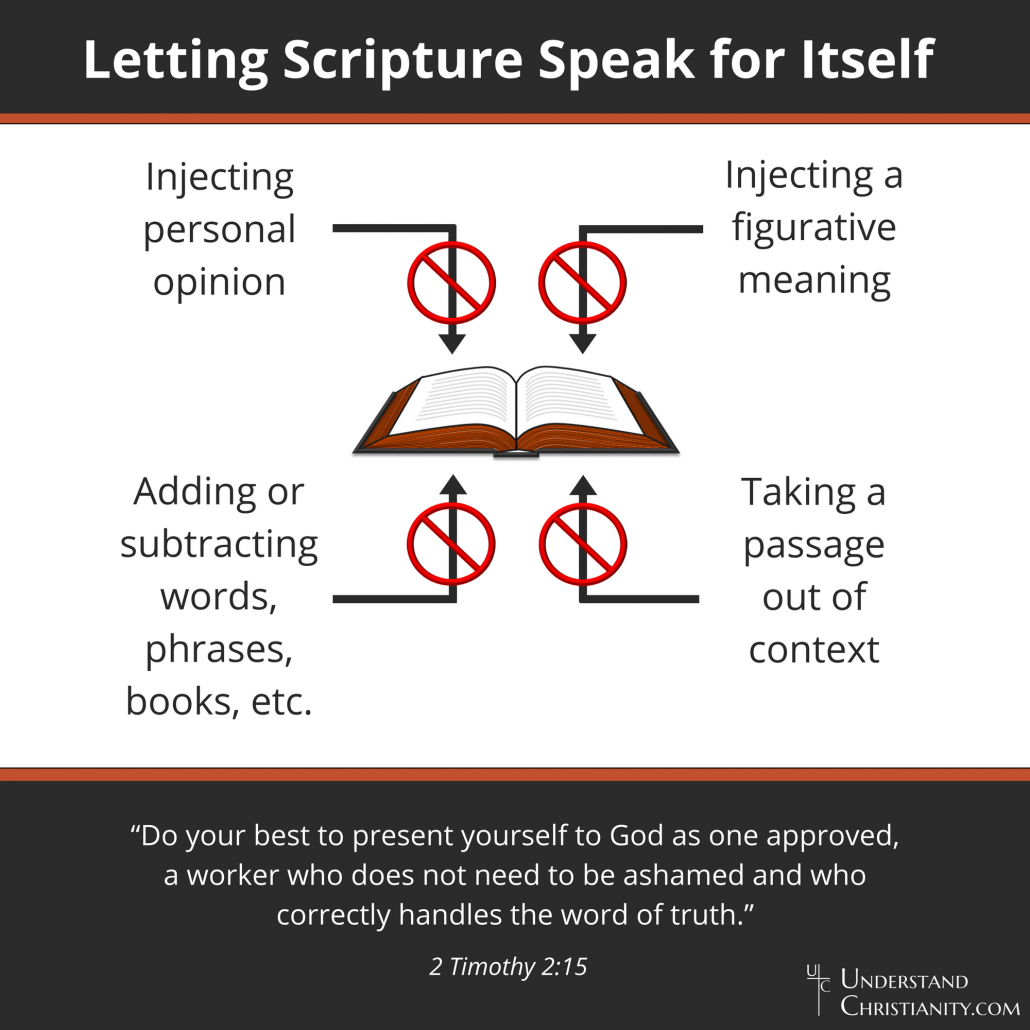Does the Bible contain contradictions?

Does the Bible contain contradictions, inexact measures, and perhaps actual errors? And, if so, does this mean that the Bible isn’t real history?
There’s something about coming to the end of a film or book and finally understanding the baffling details that have previously made no sense. Like the "Last kingdom" - Different incidents are explained, problems are ironed out, and everything comes to a satisfactory ending.
But viewers or readers hate stories that conclude with unanswered questions and inconsistencies, so editors try to eradicate any such untidiness. So well-edited books leave no loose ends and contain no contradictions.

Critics of the Bible sometimes mistake it for this kind of literature. They know the claim that the Bible is inspired by God (2 Tim 3:16), so they think that its narrative should be tidy, self-explanatory, and self-consistent. However, ancient historians know that potential contradictions and apparent mistakes are normal in true historical documents, so they aren’t surprised to find them in the Bible.
In fact, if there weren’t any inconsistencies or problems, historians would conclude that it was either made up or overedited in order to “correct” it.
Anyway, historians love problems and difficult details, because these can often lead to the discovery of hidden events and new historical facts.

This doesn’t mean that Bible scholars are not interested in getting to the bottom of difficulties in the text. They investigate them keenly, and every now and then a mystery is solved by new information. For instance, Genesis 2:14 locates Eden in eastern Turkey, at the heads of the Euphrates and Tigris rivers. That was a problem because both ancient and modern thought placed the origin of humanity elsewhere.

We expected Eden to be in Africa or perhaps in ancient Mesopotamia, where human culture first produced towns and agriculture.

However, recent excavations at Göbekli Tepe in eastern Turkey reveal a sophisticated worship center two thousand years older than the Mesopotamian civilization. And on nearby hills, geneticists have pinpointed the origin of the grass from which all varieties of cultivated wheat have descended.
In other words, the earliest evidence of human worship and farming is in the area of the biblical Eden. This doesn’t mean that we have found the identity of Eden, but the geographic clues in the Bible now agree with clues from other disciplines.
PROBLEMS SOLVED

Sometimes new discoveries create problems before they solve them. There was no archaeological evidence for the name “Nazareth” until it was found in 1960 on an inscription. But, surprisingly, the name was spelt Natsereth, with the Hebrew letter tsade instead of the letter za’in as implied by the Greek Gospels.

However, these two letters are very similar—they are both versions of “z.” The difference in pronunciation is similar to the difference between the tower of “Pisa” and the food “pizza,” though of course, we aren’t sure how they were pronounced in first-century Palestine.

Now that we know “Nazareth” was spelt with a tsade instead of zayin, this actually solves the problem of the quote “He shall be called a Nazarene” (Matt 2:23). There is no prophecy in the Old Testament about the Messiah being a Nazer (i.e., someone who takes a Nazirite vow), but there are prophecies about him being a Natser (i.e., a “Branch,” as in Isa 11:1). So this solution, which had been guessed by many commentators, is now confirmed by archaeology.

Although factual problems are sometimes resolved by new discoveries, the Bible still contains many issues for biblical scholars to puzzle over. For example, Mark 2:26 says David ate the holy bread reserved for priests “in the days of Abiathar the high priest.” But 1 Samuel 21:1–4 says it was the priest Ahimelek who gave David this bread.

Commentators have come up with some ingenious solutions. Perhaps Abiathar was the high priest at the time that Ahimelek handed over this bread—because in this passage Ahimelek was merely called a “priest.” This would be credible if the high priest Abiathar had been the father of Ahimelek, but actually it was the other way around—Abiathar was the son of Ahimelek (1 Sam 22:20).
Or perhaps “in the days of” simply means “in the days of his lifetime,” indicating that Abiathar was already born. This solution works fine in English, but the words “days of” don’t actually occur in the Greek, which simply has epi. In this kind of context, epi is the normal way to express “during the tenure/reign of,” as in “during the high-priesthood of Annas” (Luke 3:2).
The real answer is probably that Abiathar was well known and Ahimelek wasn’t. Abiathar figures a great deal in the story of David—in fourteen separate chapters—whereas only this one event is recorded for the whole life of Ahimelek, so Abiathar was named, even though this wasn’t exactly correct.
This wasn’t intended to fool anyone, but it was intended to be helpful.

We often do the same kind of thing. For example, we might say, “In the days of President Kennedy the Russians started the space race, but the Americans eventually won it.” Strictly speaking, this is wrong, because the Russians launched Sputnik in 1957 and Kennedy’s presidency started in 1961, but that doesn’t really make the statement false—it is merely wrong in a small detail.
In the same way, Mark says that David ate the priests’ bread back in the day of that famous high priest Abiathar, though Abiathar didn’t actually become high priest till his father was killed a few months later.
APPROXIMATE MEASURES

The Bible approximates in other ways. For example, 1 Kings 7:23 says the round temple basins were ten cubits across and thirty cubits around. However, pi is 3.14, so if the diameter was ten cubits, the circumference must have been 31.4 cubits. Some interpreters suggest that diameter was measured below the rim, where it was narrower, which could be the solution. But it seems more likely that the author didn’t intend to make exact measurements.
There are more than two hundred occasions where things are measured in “cubits” (i.e., the length from the hand to the elbow), but a fraction of a cubit occurs only for the frame, table, and ark of the covenant in the Tabernacle, and the height of Goliath is “six cubits and a span” (Exod 25:10, 17, 23; 26:16; 1 Sam 17:4). Perhaps all the other lengths were really exact multiples of a cubit, but it seems more likely that the Bible is recording sensible approximations.
But if the authors of Bible books approximate sometimes, how can we know when they are being accurate? Can we rely on every detail in the Bible? The most authoritative Protestant answer to this question is the Chicago Statement on Biblical Inerrancy (1978), which says: “Scripture, having been given by divine inspiration, is infallible, so that … it is true and reliable in all the matters it addresses” (article XI).

The Chicago Statement does allow for the possibility that scribes might occasionally have made a copying error (article X), and it says that we should not judge Scripture by
“standards of truth and error that are alien to its usage and purpose … lack of modern technical precision … use of hyperbole” (see Article XIII). Nevertheless, “inspiration, though not conferring omniscience, guaranteed true and trustworthy utterance on all matters” (article IX).
This statement is not a simplistic conclusion that everything in the Bible is true as stated because it takes into account that the Bible is not a technical manual with exact measurements and that it often uses poetic exaggeration or metaphor.
In practice, many Protestants follow the principle that the Bible is accurate concerning its main message (i.e., God’s relationship with humanity and our salvation) and not necessarily accurate with regard to incidental details that occur.

Roughly the same conclusion was reached by the Second Vatican Council in 1964 on the inerrancy of Scripture. Catholic statements used to be very similar to the Chicago Statement.

For example, Pope Leo XIII said in 1893,
“It is absolutely wrong and forbidden … to admit that the sacred writer has erred,” and he criticized those who limited divine inspiration to “the things of faith and morals, and nothing beyond.”But the Second Vatican Council came to a different conclusion because it considered problems such as Abiathar and Ahimelek (discussed above) and Matthew 27:9, which quotes words from “Jeremiah” that actually occur in Zechariah 11:12–13.
Matthew 27:9 Then what was spoken by Jeremiah the prophet was fulfilled: “They took the thirty pieces of silver, the price set on him by the people of Israel.
Zechariah 11:12-13 I told them, “If you think it best, give me my pay; but if not, keep it.” So they paid me thirty pieces of silver. And the Lord said to me, “Throw it to the potter”—the handsome price at which they valued me! So I took the thirty pieces of silver and threw them to the potter at the house of the Lord.It concluded that inerrancy was indeed limited to matters of faith and morals—the intrinsic message of God. In order to not contradict Leo XIII, the final statements emphasized the subtle difference between inspiration (i.e., originating from God) and inerrancy (i.e., containing no errors), though I’m not sure Leo XIII would have agreed with this distinction.
WHAT TO DO WITH APPARENT CONTRADICTIONS

God has chosen to communicate his word through fallible humans, and everyone agrees that these human authors are reflected in their various writing styles. Most would also accept that these authors could make errors in grammar without affecting the truth of the message.

- So, why shouldn’t the same apply to occasional errors in fact?
- So long as the message is still clear, why would God allow one type of insignificant error and not another?
Since God inspired humans to write in their own style instead of dictating his message to them suggests that the method of personal communication was more important to him than absolute accuracy in every detail.
However, God prevented errors that would obscure his message, since such errors would prevent it being “useful for teaching, rebuking, correcting and training in righteousness” (2 Tim 3:16).
The 'inspired' message of the Bible does not merely concern faith and morals, as the Second Vatican Council concluded. Part of its message is that God has interacted in history, from the times of Abraham and Moses to Jesus and Paul—so historical details are also important.
This means that when you come across any apparent historical contradictions, you should try to solve the mystery. In fact, you may revel in them, because really hard questions are often the tiny crack that opens up hidden truth.

They may reveal a doorway into something the church has forgotten about—such as the importance of women’s ministry in the early church. Or they may lead us to question the weak scriptural foundations for a doctrine that has been accepted for historic reasons—such as the divine right of kings.

Although God may have allowed fallible human authors to record occasional insignificant errors, this won’t stop me or you trying to solve these apparent contradictions.
Like any historian—even those investigating secular sources—we know that such problems are often due to our ignorance of details that may be explained later. Real history is always complex, and the fact that apparent problems exist demonstrates that the Bible is a collection of real historical documents about events when God intervened. That’s the most exciting kind of history we can imagine.
Author: Brewer, D.


